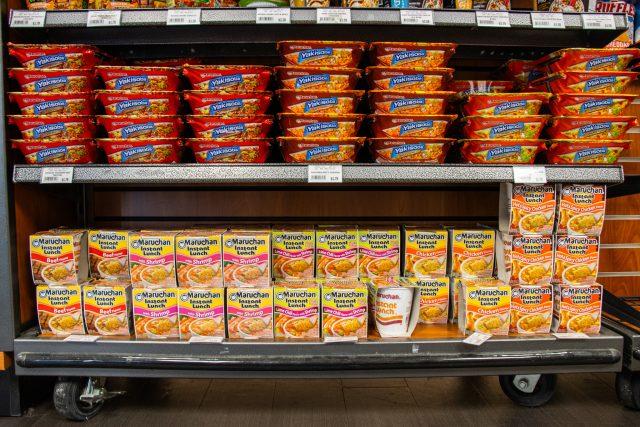OLLA MOKHTAR
campus editor
olla.mokhtar@my.tccd.edu
Go to school, go to class, go to work and repeat.
In the time between, many students find it difficult to have a home-cooked meal, so the convenience of snacks, chips, soda and fast food takes its place.
The effects of eating it so much have detrimental effects, namely depression.
According to a study published Sept. 20 by the Journal of the American Medical Association, there is a link between ultra-processed foods, particularly sweeteners and artificially sweetened beverages, and an increased risk of depression.
This study only included women. However, a similar study by the National Library of Medicine indicated similar findings.
Christina Liew-Newville, SE dietetic technician program director, said that serotonin is one of the neurotransmitters that affects mood, and 95% of the body’s serotonin is produced in the gastrointestinal tract.
“Many people are emotional eaters,” she said. “They eat when they are stressed, sad and depressed. They usually eat sugary items or ultra-processed foods such as candies, cakes, cookies, chips or ice cream at that time. These sugary items will negatively impact the microbiome [the bacteria] in the intestine and further affect an individual’s mood.”
According to the study, the consumption of “comfort food” leads to a habitual spiral. The more ultra-processed foods consumed, the more a person would want it.
UPFs increase the risk of cancers, Type 2 diabetes and cardiovascular diseases, Liew-Newville said. In addition, various food additives and artificial sweeteners may negatively affect the presence of good bacteria and lead to the development of depression.
Healthy food promotes good bacteria, and UPFs fuel harmful bacteria, she said. Good bacteria affect people’s mood by influencing the production of serotonin and protecting from the toxins and effects of the harmful bacteria in one’s gut.
William Brown, professor of psychology at South Campus, said that veering away from UPFs can be difficult as people are often at the mercy of whatever is available and affordable.
“The best thing I can suggest is to know what is conveniently available and what the options are, and take the initiative to supplement those if necessary by creating your own stash of healthy alternatives,” he said.
As a Type 2 diabetic, NE student Jerry Proctor had to eliminate UPFs and fast foods from his diet. However, before getting diagnosed, he ate UPFs 3-4 times a week.
“Whenever I was diagnosed with diabetes, I knew the consequences of not taking care of yourself,” he said. “You can go into a diabetic coma and even get amputations to the toes, feet and legs. So that alone scared me into giving it up and going healthy. Even now, I don’t even drink pop.”
While students are going about their busy days and see fast food restaurants around them, Proctor said they are influenced to buy out of convenience.
“To me, that’s their goal. I mean, location, location, location, right?” he said. “The marketing people behind fast food restaurants know exactly what they’re doing because it’s what they’re supposed to do. It does influence whether somebody eats from these places or not around campuses.”
NE student Ethan Savell said that he also ate UPFs in the form of fast foods at least three times a week. Now, he only eats it once every couple of weeks.
“It was just not healthy,” he said.
Savell said that he suspects he eats too much, he’ll catch himself eating a snack. He said that he tries to eat healthily but that not everything today is.
“It’s a quick meal so I’m happy about that,” he said. “It just doesn’t feel good to eat. I know all the calories and grease that’s probably in it and how they process most of the food.”
Some alternatives he’s found for snacks at least include peanut butter crackers, cereal, granola bars too.
Liew-Newville recommended TCC classes that train in nutrition and dietetics that could to an Associate of Applied Science degree in the dietetic technician program.
She also suggested habits like meal-prepping and packing meals, involving family and making it a group activity or trying out new recipes. She said to choose lean meat, fish and adding an extra serving of vegetables and more.
“Once you learn how to eat healthier, you can teach others to eat better and have better health,” she said.



































